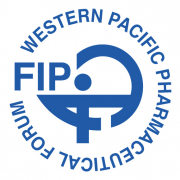FIP Hospital Pharmacy Section Webinars
To see in a detailed way what PSWC has in store for you, please take a look at the Preliminary program.
Hospital pharmacists from around the world belong to the Hospital Pharmacy Section of FIP. We focus on education, communication and improving the practice of pharmacy in hospitals around the world.
Members of the Hospital Pharmacy Section share experiences and discuss issues affecting the practice of pharmacy and health care in the hospital setting. We identify the global issues that require attention and work together to develop guidelines and standards of practice.
The members of the Hospital Pharmacy Section meet yearly at the FIP Congress where personal and professional connections are made, and ideas shared. Notably, The Global Conference on the Future of Hospital Pharmacy was hosted by the Hospital Pharmacy Section as part of FIPs’ 68th annual congress. A total of 348 hospital pharmacists representing 98 nations met in Basel, Switzerland on 30 and 31 August and successfully developed consensus statements reflecting the profession’s preferred vision of practice in the hospital setting. These statements were updated at the 2014 FIP congress. Yet, sharing and educating our colleagues goes well beyond one annual event. With that in mind, grounded in the Basel Statements, the FIP Hospital Pharmacy Section is pleased to announce three webinars to meet the interests and educational needs of our members.
Enhance your skills, confidence and ability to better serve patients in health-systems around the world.
Topic 2: Medication Safety Best Practice
Date/Time: 15 November 2016 / 07:00 AM EST (US) Find your local time here.
As health care practitioners, it is important that pharmacists provide care that is both effective and safe. This learning opportunity outlines global best practices for ensuring patient safety, and technological advances that can augment our efforts.
Related Basel Statements:
• 8. Hospital pharmacists should monitor patients taking medicines to assure patient safety, appropriate medicine use, and optimal outcomes for inpatients and outpatients. When resource limitations do not permit pharmacist monitoring of all patients taking medicines, patient selection criteria should be established to guide pharmacist monitoring.
• 39. Hospital pharmacists should develop simple, rules-based approaches to advancing patient safety; for example, when a large number of dosage units are needed to give a dose (more than two tablets, vials, etc.), the prescription should be verified prior to preparation or dispensing.
• 40. Hospital pharmacists should ensure that the information resources needed for safe medicines preparation and administration are accessible at the point of care.
• 46. Hospital pharmacists should develop and implement policies and practices that prevent route errors.
• 51. An easily accessible, non-punitive reporting system for medication errors, including near misses, should be established and maintained. Reports of medication errors should be reviewed internally and sent to regional or national medication error reporting or regulatory programs. These data should be regularly reviewed to improve the quality and safety of medicines use practices.
Presenter(s):
John B. Hertig: Purdue University, United States
Abdul Latif Sheikh: President, Society of Hospital Pharmacists of Pakistan
Jacqueline Surugue: Past President of FIP Hospital Section
Register here


